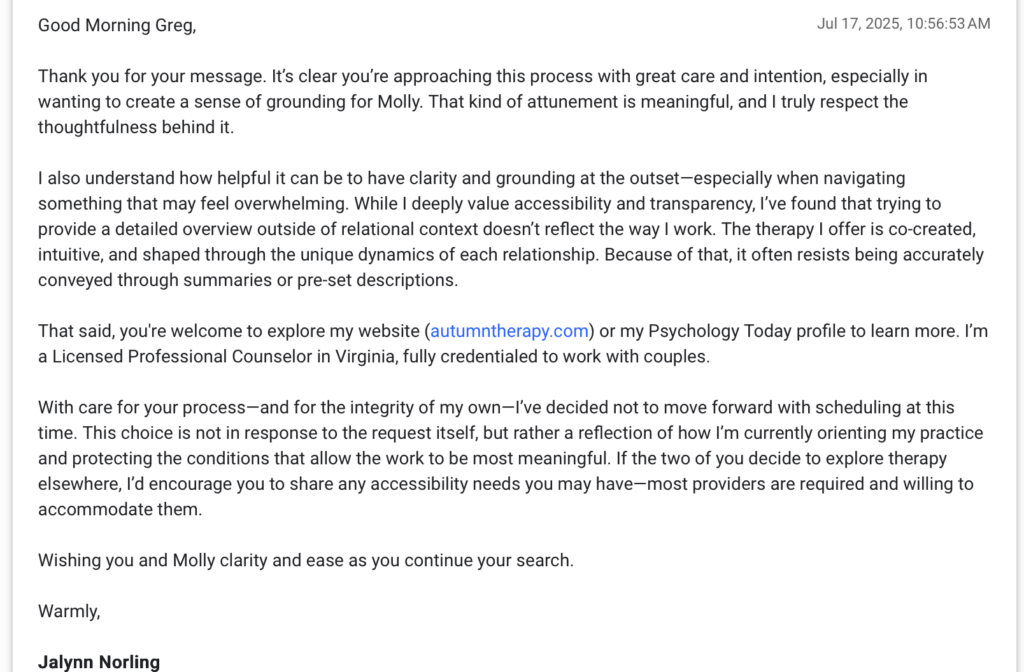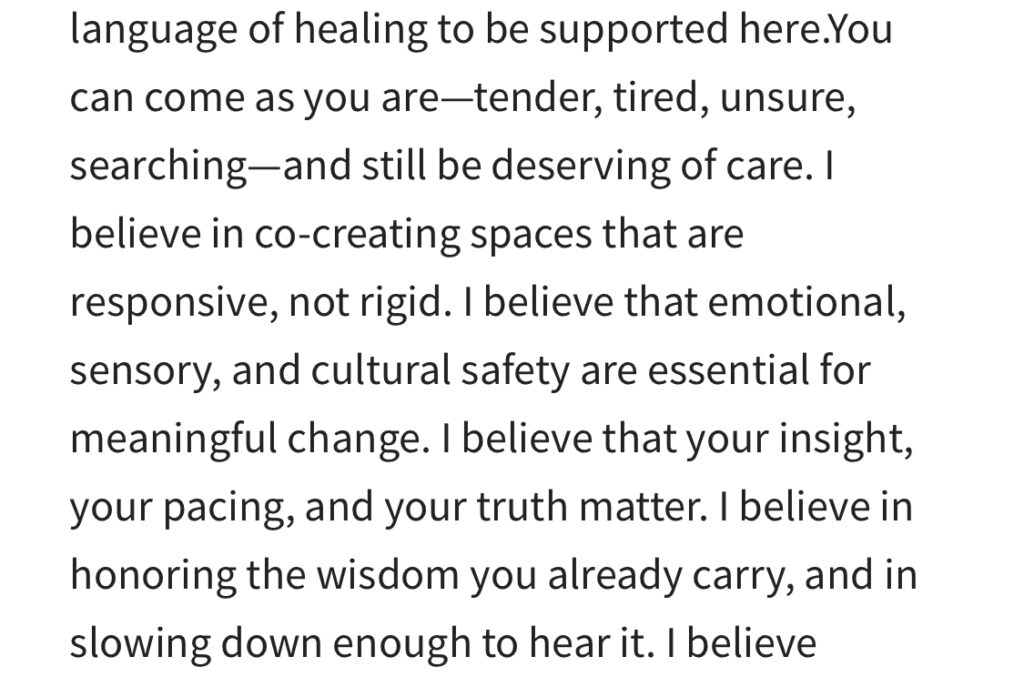I have an embarrassing phobia.
Yup, it’s true. I’m not afraid of normal stuff like snakes or spiders or heights. I’m afraid of something I’ll nickname “yellow hats.” (I’m not going to name the actual phobia here because that just feels like asking to get roasted on the internet.)
I also have OCD.
A few months ago, I decided it was time to take real action. I was already seeing a therapist, but she wasn’t particularly knowledgeable about OCD or phobias. So I started the emotionally exhausting, time-consuming process of finding a new therapist.
I wrote up an email to explain myself to potential providers—my quirks, my challenges, my strengths, my OCD, and yes, my fear of “yellow hats.”
And it worked. After just one interview, I met Courtney Parks at Waterlily Therapy LLC, and I felt an immediate sense of warmth and connection. She seemed friendly and open. I was actually excited to begin therapy.
At the same time, I was nervous. I’ve been abandoned a lot in my life, and I worried I’d get attached only to have that stability pulled away. I even voiced that fear in session, and Courtney said she understood. That helped me trust her.
So I started to feel something like therapeutic love—not “love” love, but a kind of hope and gratitude. The kind of bond that makes you think, “Maybe I can finally get help.” I wish we had better language for that kind of connection.
After a few sessions, I realized that although I had talked about my “yellow hat” issue in detail, I hadn’t asked about it in direct relation to her. So I sent an email asking, somewhat awkwardly, if she planned to, um, buy a yellow hat.
She wrote back that she was considering it.
The stomach drop I felt was intense. If you’ve ever had a phobia, you probably know the feeling—your brain tells you the threat is irrational, but your body doesn’t listen. If you haven’t experienced it, this link gives a good overview.
I didn’t want to walk away from therapy with her. We had built rapport, and I genuinely liked her. Plus, I was SO overwhelmed—my mom had cancer, and the same week, my 2-year-old service dog (and best friend) was diagnosed with aggressive cancer. Emotionally, I was hanging by a thread. I knew I wasn’t in a place to go searching for someone new.
So I replied to her email, explaining that I was upset, but I just needed a little time and space. I told her that I planned to circle back after my pup had her first cancer surgery.
She responded by terminating me as a client. She said not to take it as a rejection, that she was making the decision out of ethics and kindness.
And maybe she truly felt that was the right, ethical thing to do. But from where I stood, it felt like being dropped when I was already drowning.
I know that to someone in a healthy place, this might not seem like a big deal. Maybe I would’ve ended things myself down the line. But the hardest part for me was that I didn’t get to decide. I didn’t get a conversation, or a warning—it was just over.
As someone who’s neurodivergent, I’ve often experienced people stepping in and making decisions for me—without asking how I feel or what I need. It’s a painful pattern I’ve lived through many times, and in that moment, it felt like it was happening again in therapy, where I had least expected it.
From the start, I had asked Courtney—what if I said the wrong thing, or expressed frustration? Would she leave? And she had assured me she wouldn’t. So when she did, it hit hard. I wasn’t just sad; I was disappointed in myself for believing it would be different.
And when she told me not to take it as a rejection, that it was just “ethics and kindness,” it didn’t land that way for me. Maybe that was her intent. But it still felt like a rejection. The difference is—she got to move forward and find another client. I had to sit in the waiting room of the vet’s office, waiting to hear if my dog’s cancer surgery had gone okay, and process that I’d just been let go by my therapist, too.
Now I get to start the therapist search all over again.
That’s my experience. Hopefully it won’t be yours.
I’m sharing this not to blame or accuse, but because I wish I had known what to look out for. I wish I’d seen the warning signs earlier. This is just one story—mine. Others may have had very different experiences, and that’s valid, too.
Photo Credit: Nik Shuliahin



